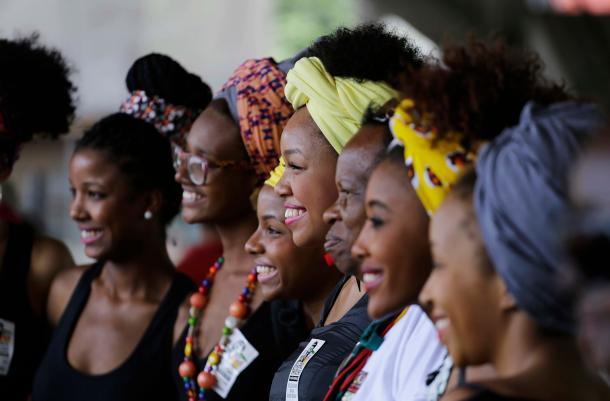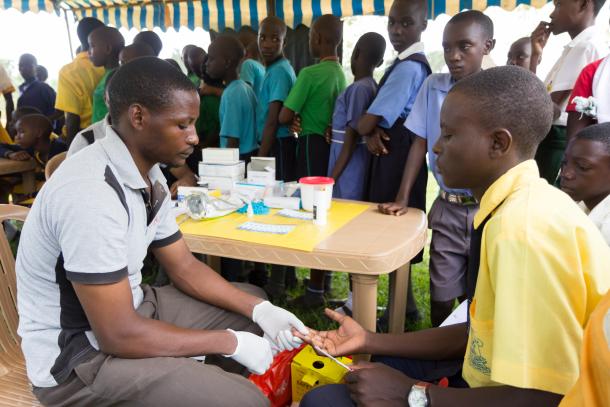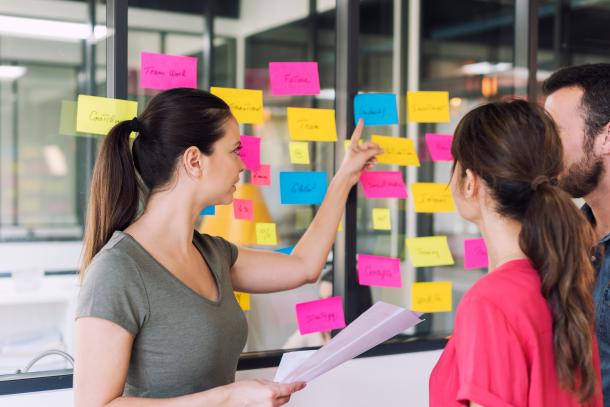
Thematic clusters
Members of the UNESCO Global Network of Learning Cities (GNLC) work together in thematic clusters to collaborate more closely with member cities that share similar issues and concerns.
The clusters make use of thematically focused online platforms to facilitate the exchange of knowledge, resources and good practices among GNLC members. They foster mutual support among cities and help to build a shared vision of issues related to sustainable development, citizenship and inclusion, health and well-being, and educational planning and monitoring.
Each cluster is led by two coordinating cities and includes all interested GNLC member cities. Overall guidance and support are further provided by the GNLC Secretariat based at the UNESCO Institute for Lifelong Learning (UIL).
Education for sustainable development
Education for sustainable development (ESD) aims to provide learners of all ages with the knowledge, skills, values and agency to address interconnected global challenges, including those related to climate change, loss of biodiversity, unsustainable use of resources and inequality. It empowers learners to make informed decisions and take individual and collective action to develop sustainable societies and care for the planet. ESD is a lifelong learning process. It enhances the cognitive, socio-emotional and behavioural dimensions of learning, and encompasses learning content and outcomes, pedagogy and the learning environment itself.
UNESCO learning cities have implemented various initiatives focusing on ESD and lifelong learning for all at the local policy and programme levels. Within the ESD cluster, they share their experiences and good examples of ESD, thus generating ideas on how to shape a more inclusive and sustainable community and advance ESD around the world. A particular focus of the ESD cluster is on climate change action. With their vast resources, cities have enormous potential to address the climate crisis and bring about large-scale change.
Local governments not only shape their local communities but also have an impact on the wider region where they are located, from the urban fringes to rural areas. Cities need to ensure their citizens have the practical knowledge, attitude and skills to change established patterns of consumption, production and transportation, and develop a low-carbon economy. The ESD cluster therefore serves as a platform for discussion, peer learning and the development of new learning initiatives for climate action.
Coordinating cities: Hamburg (Germany) and Shanghai (People’s Republic of China).
Relevant Resources : ESD Implementation in Learning Cities https://unesdoc.unesco.org/ark:/48223/pf0000379535?posInSet=1&queryId=02b9389e-7061-4644-bde8-607c6824a339

Global citizenship education and inclusion
Global citizenship education (GCED) provides individuals with the knowledge, skills and values needed to become active and responsible global citizens. It recognizes that sustainable development requires diverse approaches that are tailored to local contexts. GCED is key to the protection of human rights, intercultural understanding, social justice, gender equality, environmental protection and technological changes.
At the core of GCED is the value of inclusion. GCED aims to empower all individuals, regardless of their background, beliefs or circumstances. It recognizes that inclusion – which ensures that everyone has an equal voice, access to resources and opportunities and a sense of belonging in their communities – is crucial for achieving sustainable development.
UNESCO learning cities have implemented various initiatives focusing on GCED and inclusion. Within this cluster, they share their experiences and good examples, thus generating ideas on how to shape a more inclusive and sustainable global community. By working together, cities develop effective approaches to address ongoing challenges and create a more just and equitable world.
Publication: Citizenship Education for Democratic and Sustainable Communities https://unesdoc.unesco.org/ark:/48223/pf0000379824?posInSet=1&queryId=c5287202-a4f0-4d9b-8639-b7daca32643f

Lifelong learning for health and well-being
Through lifelong learning, individuals develop new skills, values and attitudes that enable them to lead healthier, more-fulfilled lives, make informed decisions and engage in positive relationships with everyone around them. Poor health can have a detrimental effect on school attendance, academic performance and learning success throughout life. Lifelong learning for health has the potential to strengthen cities’ health education provisions, boost their capacities to adapt to the health-related needs of the local population and strengthen their resilience to future challenges.
Before developing robust lifelong learning for health policies and programmes at the local level, it is first necessary to assess existing strategies, take stock of available financial resources, evaluate existing capacities and human resources, and develop a collaborate governance model.
The work of the lifelong learning for health and well-being cluster includes conceptualizing lifelong learning for health and raising awareness of the role of cities in its promotion, and developing a framework for an intersectoral collaboration such as setting-up taskforces – involving stakeholders in education, health and other sectors – that would oversee the integration of health-related learning opportunities across formal, non-formal and informal learning settings.
Publication: Enactment Guide of the Yeonsu Declaration for Learning Cities https://www.uil.unesco.org/sites/default/files/medias/fichiers/2022/05/YeonsuDeclarationEnactmentGuide_27052022.pdf

Educational planning and monitoring (EPM)
Educational planning, monitoring and evaluation are key to the successful implementation of lifelong learning opportunities. Moreover, in the current context of increased decentralization, they are central to the development of effective, integrated local governance structures.
Planning for education is a key component of learning city development and should be a collaborative effort between sectors and in coordination with a number of stakeholders, namely school staff, learners, caregivers, civil society partners, private companies and local administrative offices, among others. Monitoring progress of lifelong learning provision and quality at the local level necessitates a set of indicators or key features, which are essential for (1) transforming political and theoretical discourse into concrete strategies and approaches, (2) measuring progress over time and (3) evaluating the benefits and impacts of the strategies that have been put into place.
This cluster focuses on the sharing of good practices in planning and monitoring lifelong learning plans and programmes. Member cities discuss common challenges to find solutions for effective educational management that takes into account formal, non-formal and informal learning environments at local level.
Publication: Cities and Educational Planning and Management: IIEP and UIL Survey Analysis Report https://unesdoc.unesco.org/ark:/48223/pf0000379537?posInSet=4&queryId=7e7fb8e6-45f4-4e64-8196-97139a2a613b


